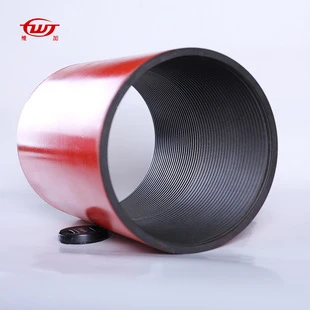- Afrikaans
- Albanian
- Amharic
- Arabic
- Armenian
- Azerbaijani
- Basque
- Belarusian
- Bengali
- Bosnian
- Bulgarian
- Catalan
- Cebuano
- Corsican
- Croatian
- Czech
- Danish
- Dutch
- English
- Esperanto
- Estonian
- Finnish
- French
- Frisian
- Galician
- Georgian
- German
- Greek
- Gujarati
- Haitian Creole
- hausa
- hawaiian
- Hebrew
- Hindi
- Miao
- Hungarian
- Icelandic
- igbo
- Indonesian
- irish
- Italian
- Japanese
- Javanese
- Kannada
- kazakh
- Khmer
- Rwandese
- Korean
- Kurdish
- Kyrgyz
- Lao
- Latin
- Latvian
- Lithuanian
- Luxembourgish
- Macedonian
- Malgashi
- Malay
- Malayalam
- Maltese
- Maori
- Marathi
- Mongolian
- Myanmar
- Nepali
- Norwegian
- Norwegian
- Occitan
- Pashto
- Persian
- Polish
- Portuguese
- Punjabi
- Romanian
- Russian
- Samoan
- Scottish Gaelic
- Serbian
- Sesotho
- Shona
- Sindhi
- Sinhala
- Slovak
- Slovenian
- Somali
- Spanish
- Sundanese
- Swahili
- Swedish
- Tagalog
- Tajik
- Tamil
- Tatar
- Telugu
- Thai
- Turkish
- Turkmen
- Ukrainian
- Urdu
- Uighur
- Uzbek
- Vietnamese
- Welsh
- Bantu
- Yiddish
- Yoruba
- Zulu
Understanding Casing Collars and Their Role in Drilling Operations
Understanding Casing Collars Key Components in Oil and Gas Drilling Operations
In the realm of oil and gas drilling, casing collars play a pivotal role in ensuring the integrity and efficiency of well construction. As drilling operations become increasingly complex, the importance of understanding various components such as casing collars cannot be overstated. This article delves into what casing collars are, their function, and why they are critical in the drilling process.
What are Casing Collars?
Casing collars are specialized components used in the oil and gas industry, specifically in the casing string of a well. Casing is a series of steel pipes that are inserted into the wellbore to stabilize the structure, prevent the collapse of the well, and protect groundwater from contaminants. Casing collars are typically thicker rings of material that are placed between sections of casing to establish connections and provide support. They are essential for ensuring that the casing remains in place and can withstand the pressures encountered during drilling and production.
Functions of Casing Collars
1. Structural Support One of the primary functions of casing collars is to provide structural integrity to the entire casing string. They help distribute loads and prevent buckling of the casing under external pressures.
2. Connection Points Casing collars serve as connection points between individual casing sections. Each casing string is assembled by connecting several joints, and collars help ensure these connections are secure and leak-proof.
3. Identification and Logging Casing collars often have markings or identifiers that help drilling crews keep track of the casing depth, configuration, and other essential parameters. This data is crucial for planning and executing well operations efficiently.
4. Facilitating Cementing During the cementing process, which involves pumping cement into the annular space between the casing and the wellbore, casing collars can help ensure that the cement settles correctly and creates a proper seal. This seal is vital for preventing fluid migration between different geological formations.
casing collar

5. Mitigating Environmental Risks By ensuring a secure and robust casing, collars help mitigate risks associated with environmental contamination. They play a critical role in isolating different layers of rock and preventing the escape of hydrocarbons or other harmful substances into groundwater.
Why Casing Collars Matter
Casing collars may seem like a small component in the larger context of drilling operations, but their importance cannot be underestimated. Properly installed and maintained casing collars contribute to the overall success of drilling programs and have several implications for safety, efficiency, and environmental protection.
1. Enhancing Safety A well-constructed casing system with properly installed collars provides crucial safety measures for drilling operations. Inadequate casing can lead to well blowouts, which pose severe safety risks to drilling crews and the surrounding environment.
2. Improving Drilling Efficiency The integrity of the casing directly influences the efficiency of drilling operations. A secure casing allows for more effective drilling and reduces the chances of costly rework due to casing failures.
3. Reducing Environmental Impact The oil and gas industry is under increasing scrutiny regarding its environmental practices. Well-designed casing systems help mitigate the risk of leaks, thus reducing the industry's impact on the environment.
Conclusion
In the complex world of oil and gas drilling, understanding the role of components such as casing collars is essential for anyone involved in the industry. From providing structural support to facilitating efficient cementing processes, casing collars are integral to the integrity of well construction. As the industry evolves and faces new challenges, the importance of high-quality components like casing collars will only continue to grow. Investing in research and development of better casing systems and collars can lead to safer, more efficient, and environmentally responsible drilling practices. Thus, as we move forward, casing collars will remain a cornerstone of successful drilling operations.
-
Tubing Pup Joints: Essential Components for Oil and Gas OperationsNewsJul.10,2025
-
Pup Joints: Essential Components for Reliable Drilling OperationsNewsJul.10,2025
-
Pipe Couplings: Connecting Your World EfficientlyNewsJul.10,2025
-
Mastering Oilfield Operations with Quality Tubing and CasingNewsJul.10,2025
-
High-Quality Casing Couplings for Every NeedNewsJul.10,2025
-
Boost Your Drilling Efficiency with Premium Crossover Tools & Seating NipplesNewsJul.10,2025







